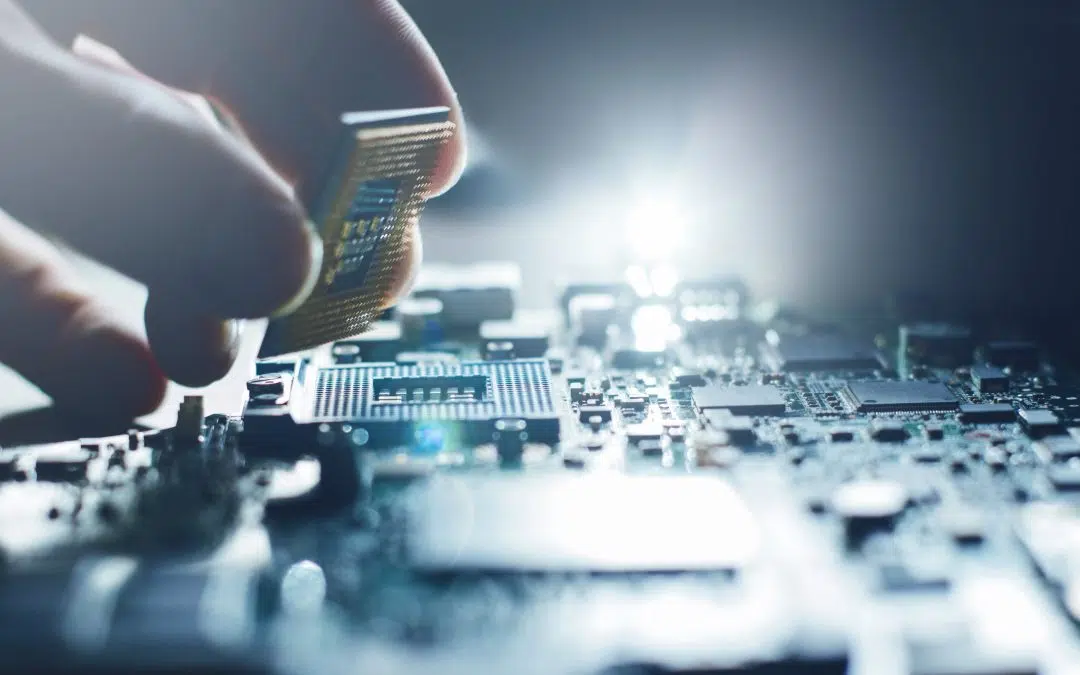Historically, prior to the application of embedded systems for industrial machines, manual intervention by the operators was required to monitor and control the machines. The status quo posed issues such as vendor specific components, network infrastructure incompatibility, costly and time-consuming integration with existing monitoring and control systems, which did not offer flexibility to support a big industrial setup.
The subsequently introduced and widely adopted PLC and SCADA based systems operated by processing the machine/device/plant data locally. Operators used to record the daily production using production line counters, generate paper-based reports or manually enter machine data on computers. The end-result of these human errors was data discrepancy leading to production loss, increased manufacturing time, effort and costs.
The two primary uses cases of embedded systems are improved machine monitoring and machine control.
Machine monitoring:
Industrial automation systems leverage embedded software development capabilities to monitor the system’s condition in real-time through controlled monitoring of variables like power, flow rate, vibration, pressure, temperature, and more. The monitoring devices such as sensors and probes communicate with each other and/or the client-server systems located in the internet or cloud via the industry communication protocols such as MTConnect, HART, EtherNet/IP etc.
Aggregated data from the disparate data sources is then stored in the cloud or a centralised database for real-time analysis to provide actionable insights through dashboards, reports and notifications. It is a proactive approach to maintaining plant uptime/reliability; reduce production losses and maintenance costs. Industrial embedded systems can perform machine monitoring to help improve productivity, optimize equipment capabilities and measure performance.
Machine control:
Using embedded system engineering services in various industrial equipment to perform specific range of tasks such as controlling assembly line speeds, fluid flow rates in a CNC machine, controlling robotic machinery etc. changed the industrial automation landscape. Communicating at the I/O level via PLCs, these systems easily integrate with the existing machine controls, leveraging automation software along with proprietary NC and CNC functionality. Industrial OEMs and manufacturing plants, can hence benefit from reduced maintenance costs, achieve a centralised and unified control architecture and optimize their performance capabilities and overall product quality.
Leverage Utthunga’s embedded systems capabilities
Industrial OEMs and plant owners vision of Industry 4.0 and IIoT is total and complete automation of the industrial network through intelligent machines and digital systems. The new communication and information techniques mandate:
- Localization and networking of all systems using energy-efficient systems that transfer only the required information
- Strong security measures for secure data transfer
Our embedded engineering services including but not limited to system/product design and wireless SoC based product development (firmware/stack/hardware), IoT allows us to provide complete end-to-end solutions for the OEMs, process and factory-manufacturing units to address the above-mentioned embedded engineering problems.
Faced with the wide range of embedded system applications, multiple opportunities and challenges, they can realize both economic and performance breakthroughs by opting for Utthunga’s team of highly skilled and embedded professionals certified in product design, firmware architecture, hardware architecture, verification & validation, certifications and a strong partner for PCB fabrication and prototyping.
One of the key enablers for smart manufacturing is the embedded OPC-UA technology that has enabled industrial devices to communicate in a standard, scalable and secure format. Utthunga’s embedded software development services proficiency can help them to achieve platform independence and interoperability to overcome the increased client/server complexity. Our embedded solutions leverage machine learning, AI, and data analytics to help monitor and control the HMIs, vision, PLCs, and motion solutions while offering recommendations for better performance, greater embedded system logic, control, and scalability.
Our embedded stack development services leverages our competencies in embedded technologies to keep pace with the rapidly evolving machine monitoring and machine control requirements and provide embedded industrial automation solutions related to:
- Product Design and Development:
- End to end product development
- Firmware, hardware application development
- Electro mechanical product development
- Process Automation:
- Metering application
- Loop powered design and development
- IS certification engineering service
- Sensor integration and sensor application development
- Factory Automation:
- Condition monitoring
- IoT gateway
- Edge computing
- Enable legacy machines for IoT
- Industrial protocol simulator
- Wireless application development
- Oil and Gas Services:
- Industrial I/O module development
- Sensor module development
- Level transmitter design and development
Please visit our website or contact us directly to learn more about our embedded software development services and systems expertise.

